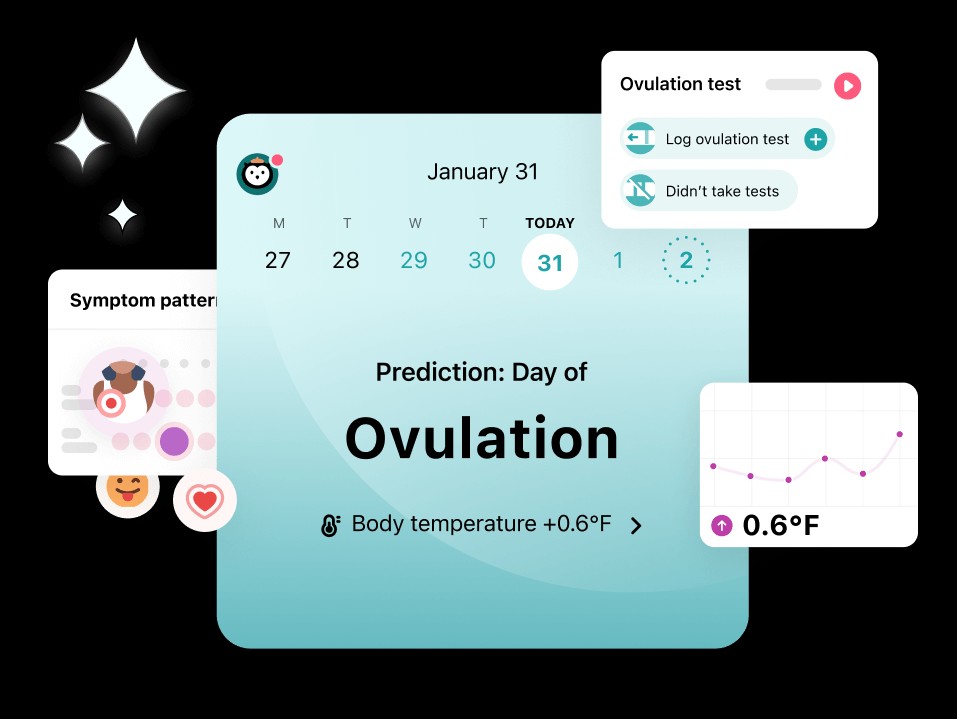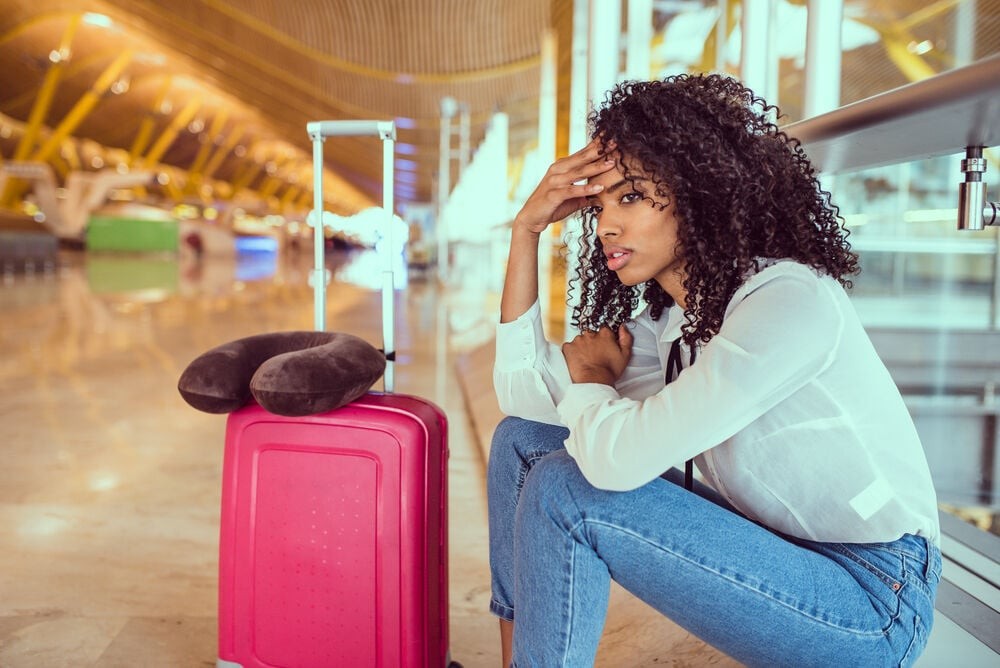Many women experience changes in their menstrual cycle while traveling. Discover the reasons behind late or missed periods when you travel and what you can do about it.
Traveling can be an exciting experience, full of new sights, sounds, and adventures. However, it can also bring unexpected changes to your body, including your menstrual cycle. It’s not uncommon for women to experience a late period while traveling, leaving them wondering, “Can Traveling Cause Your Period To Be Late?” The answer is yes, and several factors contribute to this phenomenon.
 Woman looking at phone while traveling, potentially tracking her period
Woman looking at phone while traveling, potentially tracking her period
Stress and Your Menstrual Cycle
Stress is a well-known disruptor of the menstrual cycle. When you’re stressed, your body releases hormones that can interfere with the regular hormonal balance needed for ovulation. This can result in late ovulation or, in some cases, prevent ovulation altogether.
Scientists believe this is an evolutionary response. When the body perceives stress, it interprets it as an unsafe environment, potentially signaling that it’s not an ideal time for pregnancy. As a result, a mechanism to delay the period can be activated.
Travel, even enjoyable travel, can be stressful. Long flights, unfamiliar environments, and disrupted routines all contribute to the stress response. Even if you’re mentally enjoying your vacation, factors like excessive drinking and insufficient sleep can still put your body under stress, impacting the pituitary gland and estrogen production, and ultimately disrupting ovulation.
 Flo App interface displaying period tracking features
Flo App interface displaying period tracking features
The Impact of Jet Lag on Your Period
Jet lag occurs when you travel across time zones, disrupting your body’s natural circadian rhythm – its internal clock. This rhythm plays a crucial role in regulating various bodily functions, including the hormonal balance that governs the menstrual cycle.
Changes in your sleep cycle due to jet lag can affect the levels of key hormones like progesterone, testosterone, and estrogen, leading to menstrual irregularities. The feeling of being constantly tired but unable to sleep properly also contributes to stress, further impacting your period.
 Woman on a train during her periods
Woman on a train during her periods
Hormonal Fluctuations and Travel
The menstrual cycle is a complex process driven by hormonal shifts. Ovulation occurs when the body releases an egg, and menstruation begins if the egg isn’t fertilized. This process involves precise changes in hormone levels, and travel-related stress, sleep disturbances, and lifestyle changes can disrupt this balance.
It’s difficult to predict exactly how your body will react to these changes. Some women may experience an early period, while others may have a late period. The key is to be aware of these potential disruptions and take steps to minimize their impact.
Sleep Schedule Changes
Travel often leads to disruptions in your normal sleep patterns. New environments can be difficult to adjust to, and factors like uncomfortable accommodations or unfamiliar climates can affect sleep quality. Changes in altitude, especially when traveling to tropical, marine, or mountainous regions, can also influence blood pressure and overall sleep quality.
The resulting sleep deprivation can lead to hormonal imbalances that further contribute to menstrual cycle irregularities.
Diet and Exercise Routine Disruptions
It’s common to deviate from your usual diet and exercise routine while traveling. Vacations often involve indulging in local cuisine, consuming more alcohol, and staying up later than usual. These changes, while enjoyable, can add to the overall stress on your body.
Abandoning healthy routines can lead to hormonal imbalances and contribute to a late period.
Birth Control and Travel
If you’re on birth control, travel shouldn’t affect your period. However, it’s crucial to adhere to your pill schedule, even when switching time zones.
Take your daily pill at the same local time each day. If the timing is inconvenient due to the time difference, a slight delay of a few hours is usually acceptable. However, if you’re taking a time-sensitive pill like progestin, ensure you take it within three hours of your usual time to avoid skipping a dose.
Also, be aware that some birth control pills may interact with alcohol, reducing their effectiveness. If you’re unsure, consider using an additional form of birth control while traveling to prevent pregnancy.
 Various birth control options available to women
Various birth control options available to women
Tips for Managing Your Period While Traveling
Here are some tips to help you maintain a more regular cycle during your travels:
- Be Prepared: Anticipate jet lag and climate changes, and try to adjust your sleep schedule before your trip.
- Stick to Your Routine: As much as possible, maintain your regular meal times and activity levels.
- Moderate Alcohol Consumption: If you’re prone to late periods, limit your alcohol intake.
- Prioritize Sleep: Use relaxation techniques, familiar teas, essential oils, or other aids to improve sleep quality.
- Manage Stress: Remember to relax and enjoy your trip. Avoid overexertion and take breaks when needed.
- Menstrual Cup Considerations: If you use a menstrual cup, bring multiple cups and cleaning supplies for quick and sanitary changes.
- Pack Pain Relief: If you experience period cramps, bring your preferred pain reliever.
- Stay Hydrated: Drink plenty of water, especially in hot climates, to help reduce cramps and prevent illness.
Conclusion: Minimizing the Impact of Travel on Your Period
Travel can indeed affect your period, often leading to delays. The key to minimizing these effects is to reduce stress on your body as much as possible. By prioritizing sleep, maintaining a healthy routine, and managing stress levels, you can help preserve your usual menstrual cycle while enjoying your travels.
A late period can be more than just an inconvenience. It can cause more intense cramping and heavier bleeding. For women undergoing hormonal treatments or awaiting cycle-dependent medical appointments, a delayed period can present further challenges. By taking proactive steps to minimize the impact of travel, you can better manage your menstrual cycle and enjoy a more comfortable and predictable experience.
References
- https://www.self.com/story/traveling-late-period
- https://www.cosmopolitan.com/uk/body/health/news/a43644/surprising-way-jet-lag-affects-periods/
- https://www.bustle.com/p/can-travel-affect-your-period-heres-why-your-cycle-may-be-out-of-whack-after-a-trip-9812062
- https://www.everydayhealth.com/pms/managing-stress-during-pms.aspx
